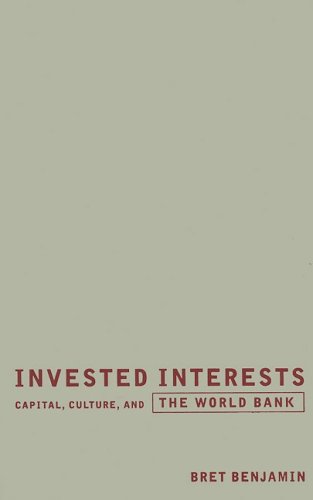(Ebook) Invested Interests: Capital, Culture, and the World Bank by Bret Benjamin ISBN 9780816648726, 0816648727
Postcolonial critic Benjamin focuses on the World Bank in a way that diverges from most critiques. While most left authors see the Bank as simply the logical expression of certain capitalist impulses, Benjamin sees it more as a hegemonic institution, responding to the critiques of it produced by various radical movements. In other words, rather than only looking at what the Bank does, he looks at what the Bank says. He shows how the Bank was at first primarily a response to the crisis of post-war Europe, and that 'development' in the 'Third World' was largely an afterthought (at the time, 'development' was thought of as the exploitation of certain resources and markets, not the promise of wealth and a modern life style). That changed as a result of the challenge of anti-colonial movements in the context of the cold war. Provocatively, for Benjamin, the 'non-aligned movement' should be understood as a Bank-underwritten effort to neutralize the more radical critiques of the time. More recently, the Bank has responded to 'anti-globalization' activists and critiques by touting 'sustainable development', 'civil society', etc. The World Bank has even sponsored workshops at the World Social Forum in an apparent effort to steer that institution in more harmless directions. Benjamin's book at times looses its focus-particularly in an overlong chapter on Arundhati Roy's God of Small Things, and in his difficult to follow argument that the Bank was crucial to the focus on 'culture' in post-war academia, but, overall, it is stimulating and pathbreaking. His chapter on the World Social Forum is one of the better essays I have read on that topic. This is a work that should stimulate more research along these lines--thinking of the Bank as an institution engaged with its opponents and attempting to construct narratives about the world economy that neutralize critiques, rather than simply the economic 'base' of the system whose 'cultural' superstructure is produced elsewhere.
*Free conversion of into popular formats such as PDF, DOCX, DOC, AZW, EPUB, and MOBI after payment.


